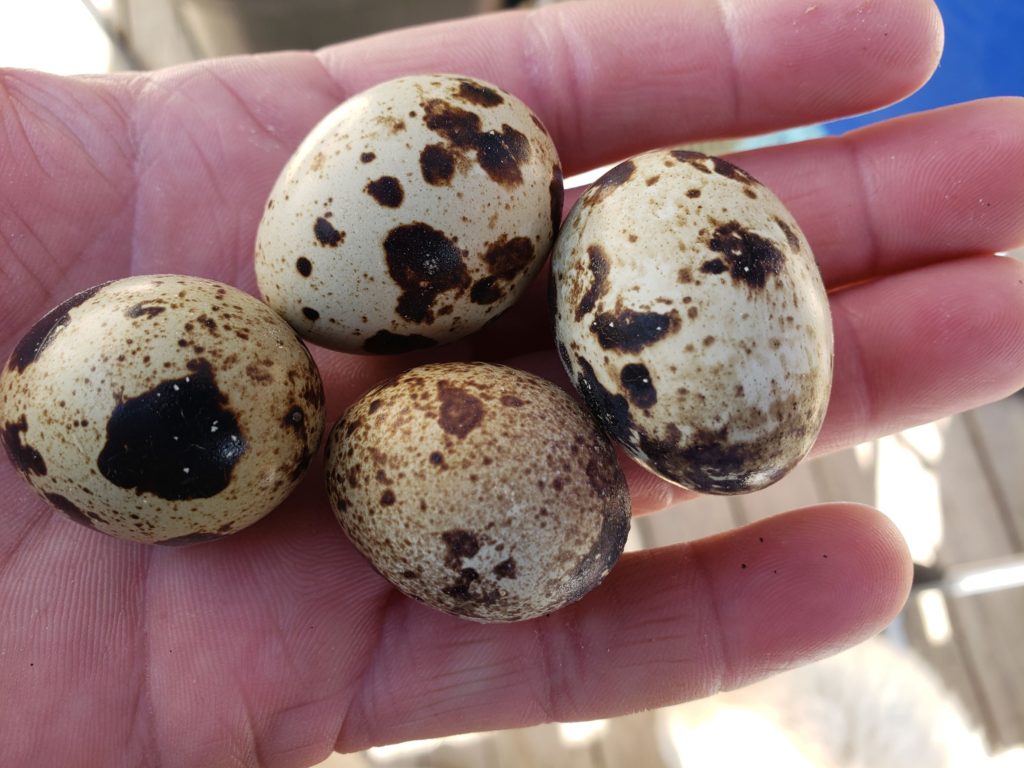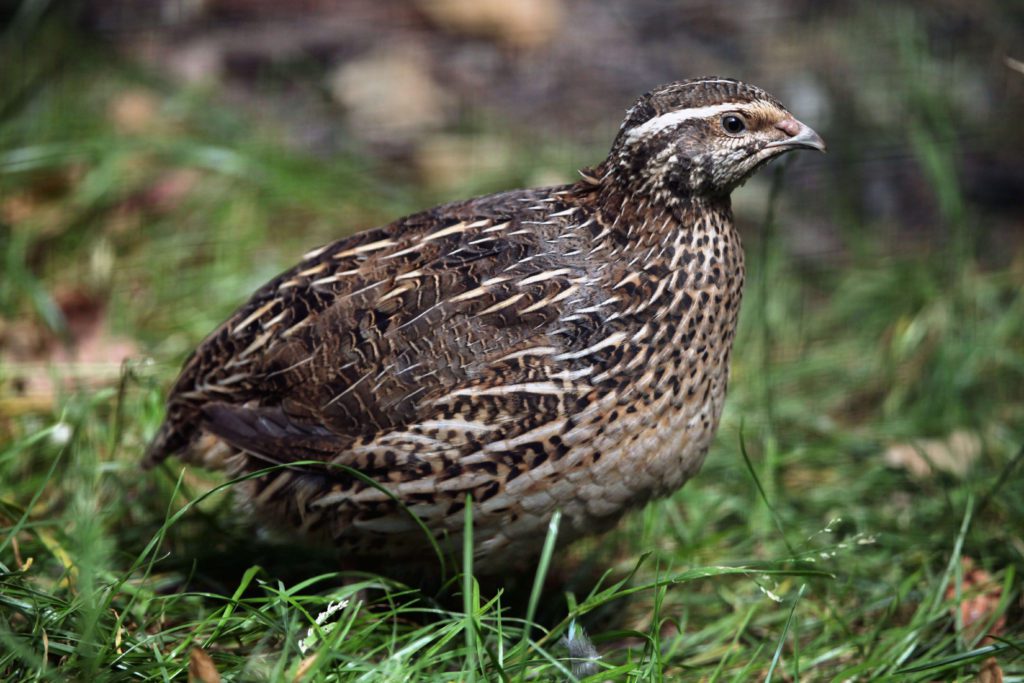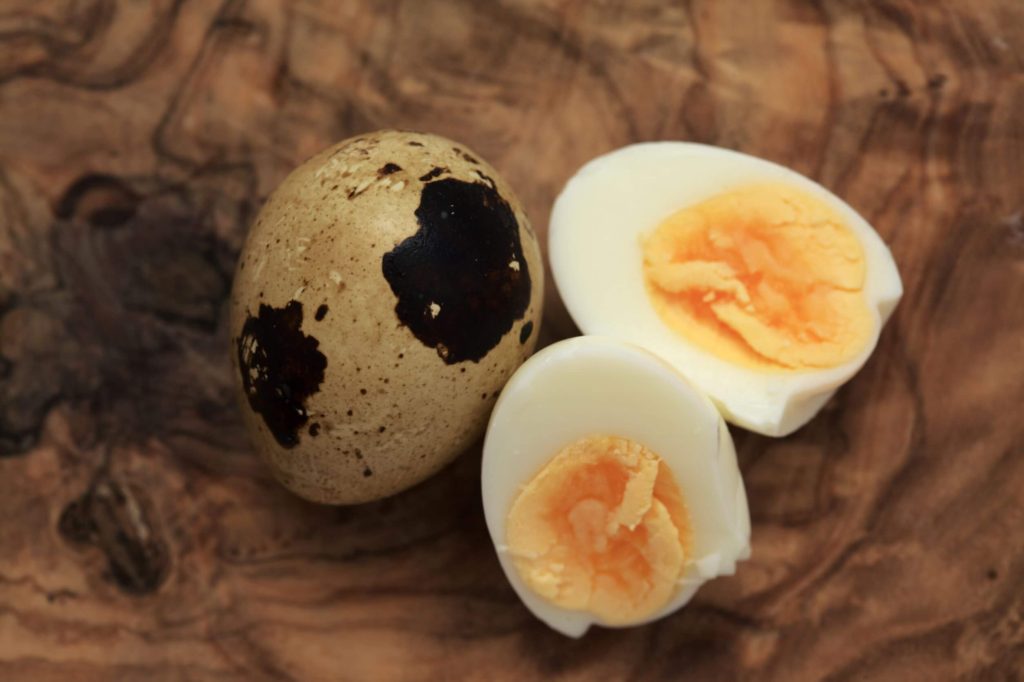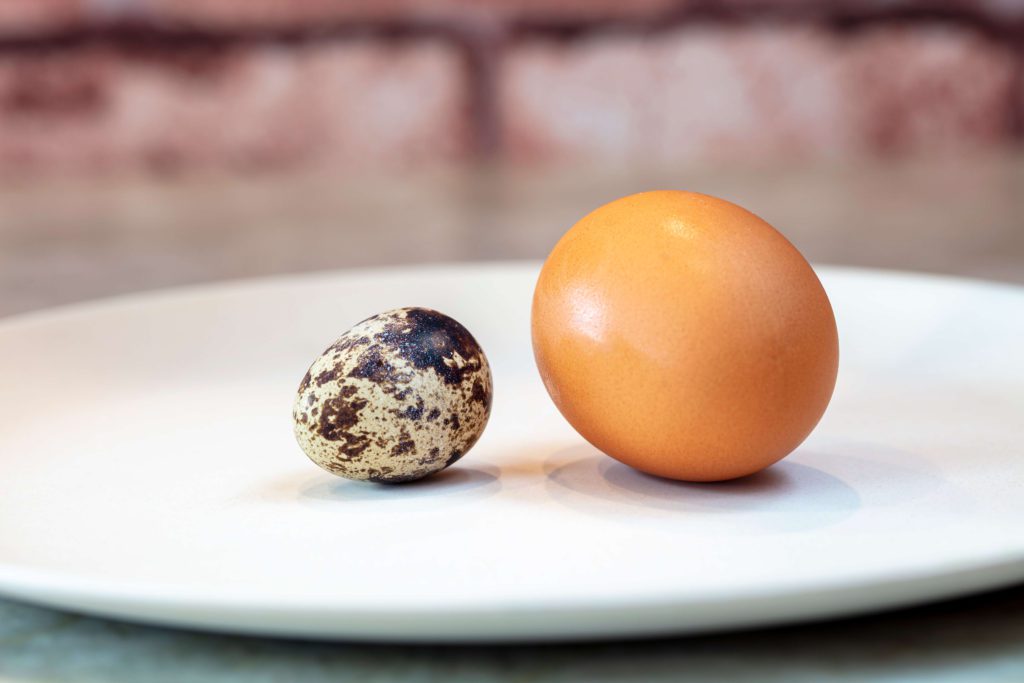Quail eggs have gained popularity in recent years as a unique and nutritious addition to various culinary dishes. Despite their small size, these tiny eggs pack a powerful punch when it comes to taste and health benefits. This article will explore quail eggs. We’ll look at their culinary uses, appearance, sizes, and different types.
What are quail eggs?
Small eggs laid by various species of quail birds, particularly the Coturnix quail. Quail are small game birds native to Asia, Europe, and Africa.
Quail are related to pheasants and partridges. Their eggs have been a dietary staple for centuries. This is because they have a unique taste and are highly nutritious.
Can you eat quail eggs?
Absolutely! Eggs from quail are not only edible but also considered a delicacy in many cuisines around the world. They are commonly used in both sweet and savory dishes and are particularly favored in Asian and European culinary traditions. Their small size makes them perfect for appetizers, garnishes, and decorative elements in various dishes.
How big are quail eggs?
Their eggs are significantly smaller than chicken eggs, making them an adorable addition to any plate. On average, they measure around 1.5 inches (3.8 cm) in length and weigh approximately 9 to 12 grams each. This petite size contributes to their aesthetic appeal and culinary versatility.
What does a quail egg look like?

The appearance of a quail eggs is distinct and charming. They have a speckled shell with a range of colors, including shades of white, beige, brown, and blue-green. The speckles on the shell add an extra touch of visual appeal. When cracked open, the shell reveals a small yolk and a delicate, clear egg white.
Types of quail
While their eggs typically share similar characteristics, different species of quail can lay eggs with variations in color and size. Here are some common types of quail:
Coturnix Quail (Also known as Japanese Quail)

These are the most common type of eggs available. They have a creamy white to light brown shell with speckles and are widely sought after for culinary purposes.
Bobwhite Quail

Bobwhite eggs are native to North America and have a creamy white to light beige shell. They are a popular choice for collectors and enthusiasts due to their unique appearance.
Button Quail

Button quail are a smaller species of quail, and their eggs reflect their size. These eggs are tiny, often measuring less than an inch, with a light cream-colored shell.
Nutritional Value
When it comes to nutritional value, quail eggs may be small in size, but they pack a powerful punch. Often considered a delicacy, these tiny eggs are popular. They offer a range of health benefits and are a nutritious alternative to chicken eggs.
In this section, we will compare them to chicken eggs. We will focus on their nutritional composition and the health benefits they offer.
Comparison to chicken eggs
Quail eggs differ from chicken eggs in several aspects, including nutritional composition. While quail eggs are significantly smaller, they are known to be more nutrient-dense. Here’s a comparison of the nutritional values of eggs from quail (per 100 grams) and eggs from chickens (per 100 grams):
| Quail Eggs | Chicken Eggs |
|---|---|
| Calories: 158 | Calories: 143 |
| Protein: 13.1 grams | Protein: 12.6 grams |
| Fat: 11.1 grams | Fat: 9.5 grams |
| Carbohydrates: 0.6 grams | Carbohydrates: 1.1 grams |
| Cholesterol: 844 milligrams | Cholesterol: 373 milligrams |
| Vitamins: Vitamin A, Vitamin D, Vitamin B12, Vitamin B2, Folate | Vitamins: Vitamin A, Vitamin D, Vitamin B12, Vitamin B2 |
| Minerals: Iron, Calcium, Phosphorus, Potassium, Zinc, Selenium | Minerals: Iron, Calcium, Phosphorus, Potassium, Zinc, Selenium |
As we can see, eggs from quail contain higher levels of protein, fat, cholesterol, vitamins, and minerals compared to chicken eggs. Their nutrient density makes them a valuable addition to a balanced diet.
Key nutrients and health benefits
- Protein: They are a rich source of high-quality protein. Protein is essential for building and repairing tissues, supporting immune function, and promoting overall growth and development.
- Vitamins: They are packed with vitamins. These include Vitamin A, which is essential for vision and immune health. Vitamin D is crucial for bone health and calcium absorption. Vitamin B12 is important for nerve function and red blood cell production. Lastly, Vitamin B2 is necessary for energy metabolism and maintaining healthy skin.
- Iron-Rich: Quail eggs contain iron, a mineral vital for oxygen transport and energy production in the body. Incorporating quail eggs into your diet can help boost your iron intake.
- Minerals: They provide a variety of minerals, including iron, calcium, phosphorus, potassium, zinc, and selenium. These minerals are vital for healthy bones. They also support immune function, assist in cell growth and repair, and ensure proper nerve and muscle function.
- Cholesterol: They contain more cholesterol than chicken eggs. However, research suggests dietary cholesterol has little effect on blood cholesterol for most people.
- Antioxidants: They are a natural source of antioxidants. These antioxidants help protect the body from free radicals, which can cause chronic diseases. This protection supports overall well-being.
Quail eggs are a nutritional powerhouse despite their small size. They offer higher levels of protein, fat, vitamins, minerals, and antioxidants compared to chicken eggs. Eating quail eggs can have a substantial positive impact on your health.
Egg Production

Quail are becoming increasingly popular not just for their delicious meat, but also for their egg production. If you want to take advantage of quail eggs for their production capabilities, it is essential to understand what elements are necessary for a successful process. Factors such as housing, nutrition, and health care are essential to consider. These are all key elements to creating an ideal environment for quail to produce eggs.
This section will explore quail breeds suitable for egg production. We will look at their laying habits, housing and environmental considerations, as well as feeding and care requirements. We will also discuss proper techniques for collecting, cleaning, sanitizing, and storing your eggs.
Quail breeds for egg production
Several quail breeds are known for their ability to lay a significant number of eggs. The Coturnix quail, also known as Japanese quail, is the most popular breed for egg production. They are prolific layers and can begin laying eggs as early as six to eight weeks of age.
Other quail breeds, such as the Bobwhite quail and Button quail, also have the potential for egg production. However, their productivity will not be as high as that of the Coturnix quail.
How many eggs does a quail lay?
On average, a quail can lay around 250 to 300 eggs per year, depending on the breed and management practices. Coturnix quail are known for their high egg production. Each hen can lay around 280 to 320 eggs a year.
It is important to remember that individual quail hens can vary in productivity. Age, diet, and health are factors that can influence their egg-laying capability.
When do quail start laying eggs?
Coturnix Quail typically start laying eggs at around six weeks of age, Button Quail around 8 weeks of age, and Bobwhite quail start laying at approximately 18 weeks.
However, it’s important to ensure that quail have reached the appropriate weight and maturity before expecting consistent egg production. Proper nutrition, adequate lighting, and a stress-free environment are key factors that influence the onset of egg-laying in quail.
Housing and environment
Creating a suitable housing and environment for quail is crucial for their overall well-being and egg production. Quail can be housed in cages or aviaries, depending on the scale of production. The housing should provide enough space for the quail to move comfortably, access to clean water, and appropriate lighting conditions. Additionally, maintaining proper ventilation, temperature control, and protection from predators are essential for their health and productivity.
Feeding and care
A balanced diet is vital for optimal egg production. Quail require a high-quality commercial quail feed that is specifically formulated to meet their nutritional needs. The feed should contain a proper balance of proteins, vitamins, minerals, and essential amino acids.
Additionally, providing clean water at all times is crucial to keep the quail hydrated and ensure healthy egg production. Regularly monitor the quail’s health. Monitor and protect against common diseases. Create a stress-free environment. These are all important aspects of their care.
Collecting And Storing Eggs

Proper collection techniques, cleaning, sanitization, and storage are crucial to maintain the quality and freshness of your eggs.
Collection Techniques
Eggs should be collected at least once or twice a day. Gently pick up the eggs, avoiding any excessive shaking or rough handling. It’s important to collect eggs promptly to prevent them from being soiled or damaged.
Cleaning and Sanitization: If the eggs have any visible dirt or feces, they should be carefully cleaned. Use a soft cloth or brush and warm water to clean the eggs gently. Avoid using soap or detergents as they can penetrate the porous eggshell.
Sanitizing the equipment used for egg collection and cleaning is essential to prevent the spread of bacteria. Use a mild disinfectant suitable for egg production environments.
Quail egg storage
Eggs should be stored in a cool and clean environment to maintain their freshness. Here are some guidelines for storing quail eggs:
- Refrigeration: They should be stored in a refrigerator at temperatures between 35°F and 40°F (2°C to 4°C). It is crucial to maintain a consistent temperature to prevent spoilage and maintain their quality.
- Packaging: Store your eggs in clean, food-grade containers or cartons specifically designed for egg storage. These containers help protect the eggs from breakage and minimize moisture loss.
- Positioning: Place the eggs with the pointed end facing downward. This helps maintain the air cell position inside the egg and reduces the risk of contamination. Positioning is especially important if you have fertile quail eggs that you intend to incubate.
- Shelf Life: They can be stored for approximately three to four weeks under proper refrigeration conditions. However, it is recommended to consume them as soon as possible for the best taste and quality.
- Rotation: Practice a first-in, first-out approach when using stored eggs. Use the oldest eggs first to ensure freshness.
- Avoid Washing: Unlike chicken eggs, it is generally advised not to wash quail eggs before storage. The natural protective coating on the eggshell helps prevent bacteria from entering through the pores. Washing can remove this protective coating, making the eggs more susceptible to contamination.
Remember, proper handling, storage, and refrigeration are essential to maintain the safety and quality of your eggs. Always inspect the eggs before consumption and discard any eggs that have cracked shells, an off-putting odor, or an unusual appearance.
Follow these guidelines for collecting and storing quail eggs. This will ensure that the eggs stay fresh, safe and are ready for use in cooking. Enjoy the unique flavor and nutritional benefits that these tiny delicacies have to offer!
Cooking And Using Quail Eggs

Quail eggs have become a popular choice in the culinary world, not only for their aesthetic appeal but also for their unique flavor and versatility. These petite eggs offer a delightful twist to various dishes and can be enjoyed in numerous creative ways.
We will explore the culinary uses of these eggs in this section. We will examine their taste profile, compare their quantity to chicken eggs, and learn different cooking methods.
Culinary uses of quail eggs
Quail eggs have gained fame as a gourmet ingredient due to their delicate size and visual appeal. They make a stunning addition to appetizers, salads, and canapés. These eggs are often used for decorative purposes in fine dining, adding an elegant touch to dishes.
They can also be pickled, deviled, or incorporated into omelets, frittatas, and quiches. Their unique flavor and texture bring a delightful twist to traditional recipes.
How do quail eggs taste?
These eggs have a rich, creamy flavor due to their high yolk to white ratio compared to chicken eggs. The taste is milder than chicken eggs, with a delicate and smooth texture. Many people enjoy the unique flavor of quail eggs, finding them a delightful departure from the more commonly available chicken eggs.
How many quail eggs per chicken egg?

When using quail eggs as a substitute for chicken eggs in recipes, it’s important to consider the quantity conversion. On average, one quail egg is approximately one-fourth the size of a chicken egg. Therefore, you would need about four eggs to match the volume of one chicken egg.
Of course this is dependent on the size on your eggs. Jumbo coturnix quail eggs are much larger and are often 2-3 eggs per chicken egg.
Boiling, frying, and other cooking methods
Quail eggs can be cooked in a variety of ways, offering endless culinary possibilities. Here are some common cooking methods for them:
- Boiling: Boiled quail eggs make a delightful snack or addition to salads. Bring the eggs to a boil. Cook them for 2 to 3 minutes for a soft, runny yolk. For a fully cooked yolk, boil them for 4 to 5 minutes.
- Frying: They can be fried sunny-side-up or over-easy, just like chicken eggs. Use a non-stick pan and cook them gently to avoid breaking the delicate yolks.
- Scrambling: Whisk the little eggs together and scramble them for a unique twist on traditional scrambled eggs. They cook quickly, so keep an eye on the pan and avoid overcooking.
- Baking: Quail eggs can be baked into tarts, quiches, or pastries, adding a delightful touch to the finished dish.
Health considerations and allergies
Quail eggs are a good option for people with chicken egg allergies. The proteins are different from those in chicken eggs. Individuals with severe egg allergies should still exercise caution when considering quail eggs.
These eggs are more than just a pretty addition to dishes. They offer a unique flavor and can be used in a variety of ways in the kitchen. Whether you boil, fry, scramble, or bake them, these petite eggs are sure to impress your taste buds. Additionally, their nutritional value, including vitamins, iron, and protein, contributes to their appeal as a health-conscious choice.
Why not include quail eggs on your next culinary adventure? They offer plenty of delightful flavors and benefits. Experience them for yourself!
Common Question About Quail Eggs
Quail eggs have become increasingly popular among food enthusiasts, home cooks, and chefs alike. Their unique flavor, petite size, and nutritional benefits make them an enticing ingredient for a wide range of culinary creations.
Are you wondering where to buy quail eggs? This article is here to help you with your questions about their availability, sourcing, and other related concerns.
Where can I buy quail eggs?
They can be purchased from various sources, including:
- Local Farms and Farmers’ Markets: Local farms that specialize in quail or poultry may offer fresh eggs from quail. Check for farmers’ markets or inquire at nearby farms to find out if they have quail eggs available.
- Specialty Grocery Stores: Some specialty or gourmet grocery stores may carry quail eggs in their refrigerated sections. These stores often cater to culinary enthusiasts and offer unique ingredients.
- Online Retailers: Many online retailers specialize in selling quail eggs, making them easily accessible regardless of your location. These retailers usually ship the eggs carefully packaged to maintain freshness.
Are quail eggs available year-round?
Yes, they are generally available year-round. However, their availability may vary depending on your location and the specific suppliers you have access to. It’s advisable to contact local suppliers or check online platforms to inquire about their availability.
How do I ensure the quality and freshness of quail eggs when purchasing?
- If buying from a local farm or farmers’ market, examine the eggs for cracks or abnormalities before making a purchase.
- When buying from a store, check the expiration date or “best before” date on the packaging. Choose eggs with the longest shelf life.
- When buying online, look for reputable sellers who prioritize careful packaging and quick delivery to ensure optimal freshness upon arrival.
How do I store quail eggs once I’ve purchased them?
They should be stored in the refrigerator at temperatures between 35°F and 40°F (2°C to 4°C). Keep them in their original packaging or transfer them to a clean, food-grade container. Remember to position the eggs with the pointed end facing downward for optimal storage.
How long do quail eggs stay fresh?
They can typically stay fresh for approximately three to four weeks when properly refrigerated. However, it’s advisable to consume them as soon as possible to enjoy their optimal taste and quality.
Can I substitute quail eggs for chicken eggs in recipes?
Yes, quail eggs can be used as a substitute for chicken eggs in recipes. However, keep in mind that you’ll need approximately four of these small eggs to replace one chicken egg in terms of volume. Adjust the quantity based on personal preference or the desired outcome of the recipe.
Conclusion
Quail eggs may be small, but their nutritional value and culinary potential make them a remarkable addition to any kitchen. They are a delicious and nutritious choice for adding a gourmet touch to any meal. They are perfect for creating impressive hors d’oeuvres or adding an extra element of flavor to home-cooked dishes. So, why not give these petite eggs a try and explore the world of possibilities they bring to the table?
